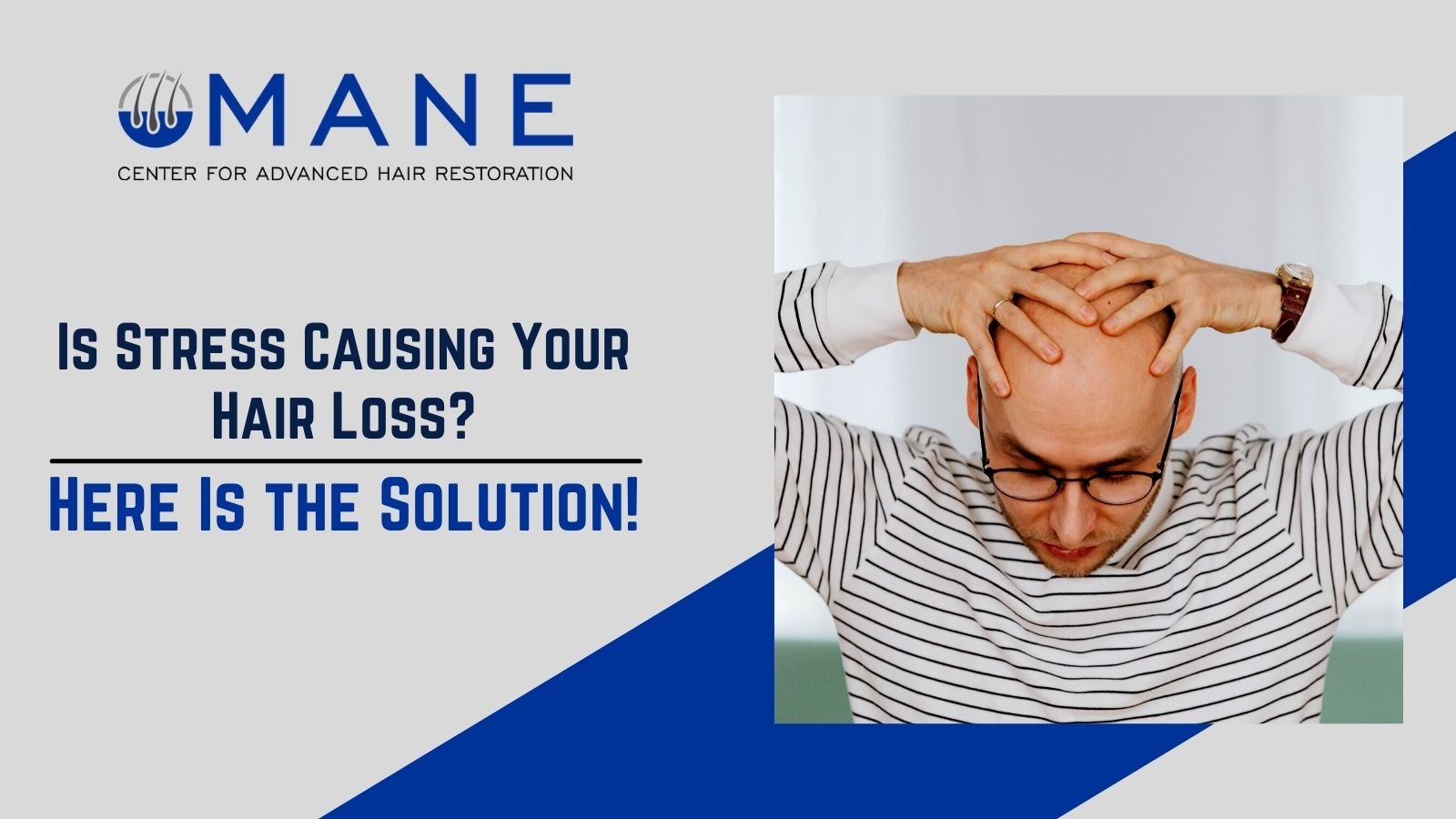In today’s fast-paced world, stress has become a common health concern often triggered by a hectic lifestyle, immense workload, and lack of sleep. The stress levels are further worsened by the consequences of the COVID-19 pandemic, including financial challenges, job insecurity, hospitalization, quarantine, loss of loved ones, and social isolation. While we all know that stress can cause depression and headache, can it cause alopecia (hair loss)? Read on to learn more.
How Much Does Stress Affect Hair Loss?
Studies reveal that
stress ( physical and emotional ) can impact hair follicles, resulting in hair loss. Besides stress, anxiety and injury can also be a common trigger.
Types of Stress-related Hair Loss
-
- Trichotillomania (Hair-Pulling Disorder): A psychological condition characterized by extreme anxiety and stress, causing an individual to pull out hair from their scalp, eyelashes, eyebrows, and other parts of their body.
- Alopecia Areata: Long-term stress can cause alopecia areata, an autoimmune condition in which the immune system attacks hair follicles, leaving bald patches on the scalp.
- Telogen Effluvium: Stress or trauma causes this condition in which hair follicles enter a resting phase. After a few months, these follicles will fall out when you comb or wash your hair. However, it is not a severe condition, as the hair will likely grow back in some time.
Is Stress-induced Hair Loss Permanent?
No. The hair should grow back once the stress levels are reduced.
How Long Will It Take for Hair to Fall out After Stress?
Hair loss likely occurs after three months of a stressful event.
Do DHT Levels Increase By Stress?
Yes,
high stress levels increase DHT (dihydrotestosterone) levels.
Tips on How to Manage Stress-induced Hair Loss
- Topical Treatments
The following over-the-counter, FDA-approved topical drugs minimize hair fall from stress while promoting hair growth.
- Minoxidil or Rogaine- Nourishes hair follicles by enhancing the blood and oxygen supply to the scalp.
- Finasteride- Stimulates hair growth by preventing testosterone from converting into dihydrotestosterone (DHT), a hormone that induces hair loss in men.
- Scalp Massage
You can treat hair loss by massaging your scalp with oils, such as peppermint, tea tree, lavender, rosemary, lemongrass, castor, and thyme.
- Relaxation Techniques
While treating hair loss, it is essential to manage your stress levels. You can practice:
- Yoga and meditation to calm your mind
- Physical and breathing exercises release chemicals, such as serotonin, endorphins, norepinephrine, and dopamine, which positively impact your mood and help alleviate your stress
- A Healthy Diet
A balanced, nutritious diet is essential for healthy hair. Eat foods rich in iron, vitamins (E, K, A, and B), zinc, and proteins to stimulate hair growth.
Related Read: 12 BEST HAIR LOSS TREATMENT FOR MEN
If you are looking for the best hair loss treatment in Chevy Chase,
contact our experts at the Mane Center for Advanced Hair Restoration today. Our highly skilled, experienced surgeon, Dr. Burka, will help restore your hair, ensuring fuller, natural-looking results.


